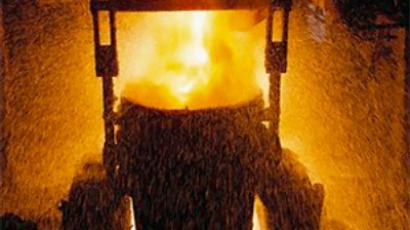Russian water to become export earner
Russia’s PM Vladimir Putin has told Business that the country plans to make water a major export, but some are pouring cold water on the move, as industry leaders warn the country can’t even provide for itself.
According to the UN, within 15 years two in three people will lack water. And according to Yury Trutnev, Natural resources and ecology minister, Russia, which has the world’s largest drinking water reserves, plans to plug that gap.
“We shouldn’t be buying bottles of Perrier, we should be selling our own abroad. We’re boosting export volumes by improving conditions for businesses to do so, because exporting water’s not a job for government.”
Cross-border disputes are already springing up, from the Middle East to North America and Africa. Now top ministers have called a clean water summit to make it a multi-billion euro export, second only to oil and gas, with Vladimir Putin underlining its great supply in the country.
“Russia’s place on the world water market is taking shape. We have a quarter of the world’s freshwater reserves, and will use our competitive advantage to the full.”
Yet at the moment Russia can’t even supply itself. Two-thirds of drinking water reserves don’t meet sanitary standards, admits Gennady Onishenko, Chief Medical Officer of Health. 2 in 3 waterpipes need urgent repair, if they exist at all.
“In Moscow we’re buying the technology to improve water quality. But in other parts of Russia, it’s still a question of fitting waterpipes to homes.”
So foreign firms are doing deals at the summit. But it’s to clean Russia’s water, not buy it, with Pierre – Yves Pouliquen, Vice President at Degremont, saying they are ready to share the cleaning technology.
“The infrastructure in Russia is quite late compared to Western standards, and there’s a lot of money to be spent in the infrastructure, either for drinkable or waste water. So as the leader in the world for the technology and design for water treatment, Degremont is ready to accompany our customer, the municipality.”
Most Russians use bottled brands, or if they can’t afford it, filter and boil tap water before drinking. Russia’s picking up steam in its efforts to tap what’s becoming known as the blue gold. But until their own citizens trust the safety of their water, there seems little chance foreigners will do either.












